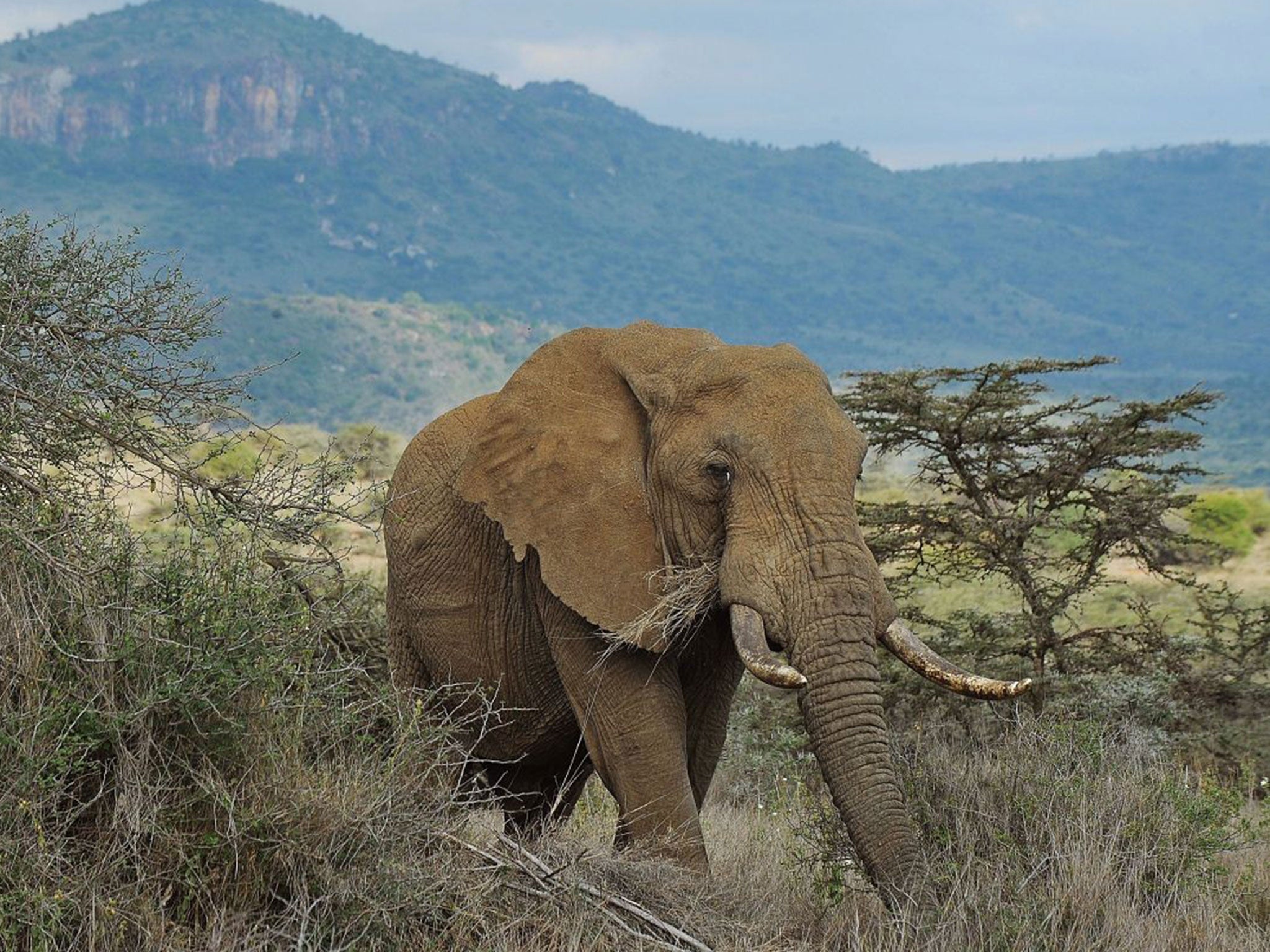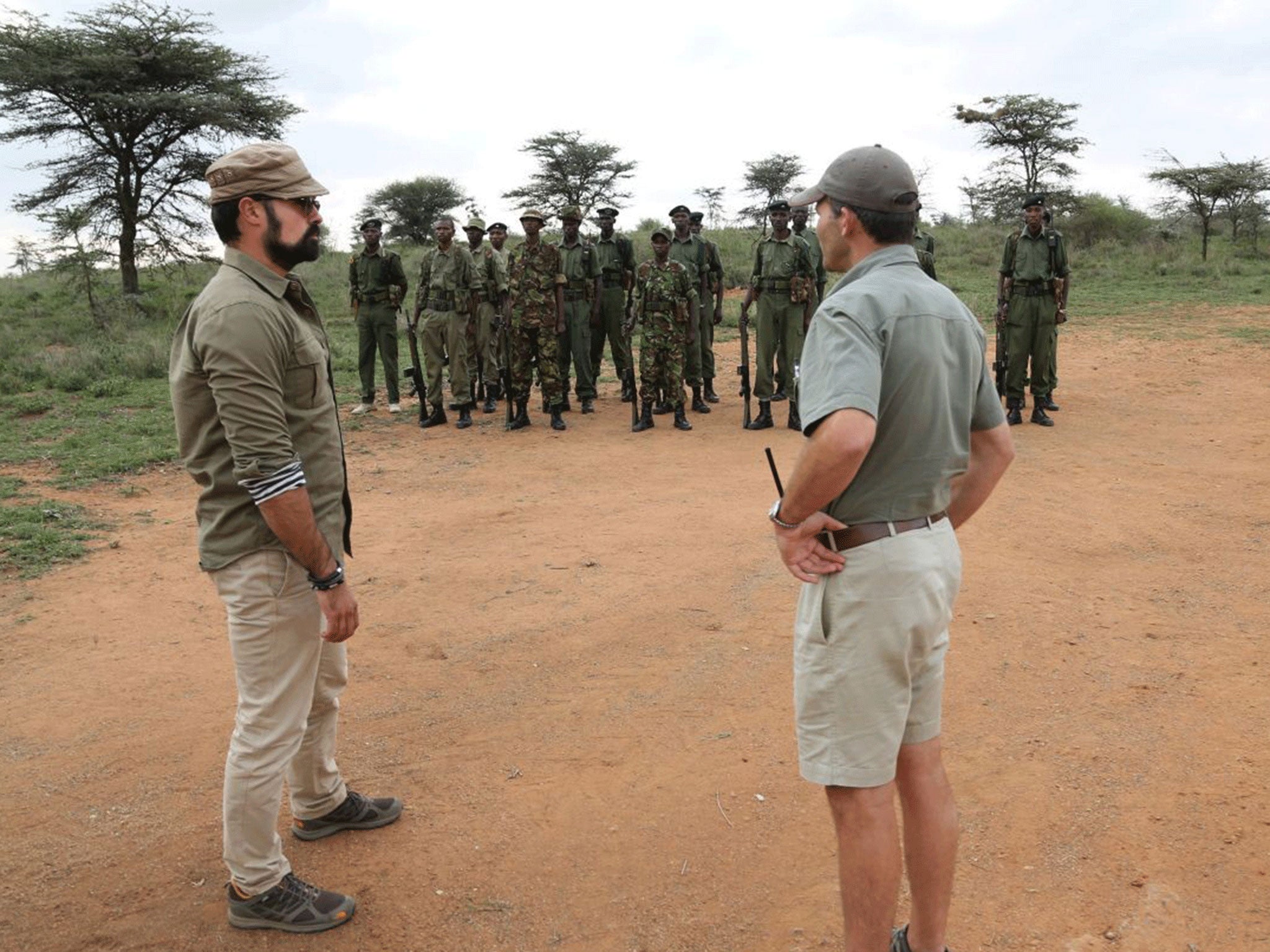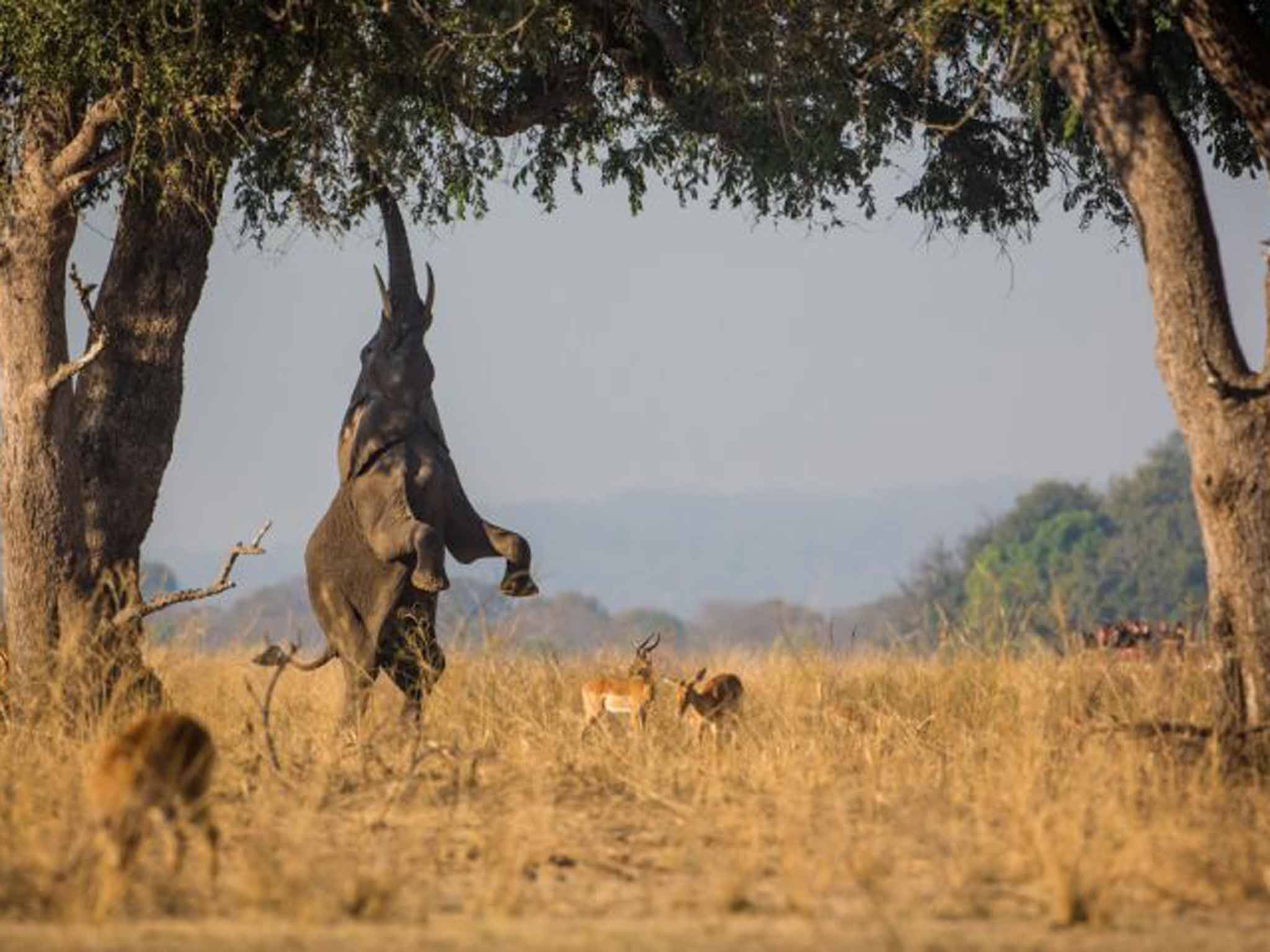Elephant Appeal 2013: How your money is already saving the world's giants
Last year’s ‘Independent’ Christmas Appeal raised £500,000 to fight poaching. Evgeny Lebedev returns to Kenya conservation area where the number of elephants killed has been reduced by a remarkable 80%


It was a tip-off that prompted the raid. Wildlife rangers had learnt that ivory and weapons were being kept in a temporary farmhouse just outside the village of Oldonyiro.
Shortly after 4am, they moved in alongside a support team of Kenyan Wildlife Services officers and forced their way through the perimeter wall made from thorn branches.
Inside the clay-walled hut at the site’s centre, they caught two poachers asleep in their beds. It did not take long to find the guns and a pair of ivory tusks buried beneath the building’s earth floor.
The rangers knew exactly where the tusks had come from. They had been hunting those responsible for a week since the body of a 40-year-old bull elephant was discovered. Flies had been thick on the flesh exposed where the skull had been sawn open to hack out its tusks.
A year ago the perpetrators might never have been caught. Back then, many of the locals in this part of central Kenya would have protected the poachers, seeing elephants and their tusks as a resource to be exploited by those who managed to kill them.
Now, however, the local chiefs have become convinced of the importance of protecting the animal – not only to ensure the survival of the species but to boost their local economies.

It is a shift in attitude that has been achieved largely due to you, our readers, and the money you so generously donated to our Elephant Appeal last Christmas.
“The area around Oldonyiro has been a particular focus for us,” said Dr Max Graham, the founder of the conservation charity Space for Giants, the subject of the Christmas appeal, as he showed me the dirt-covered G3 and Cal Ben rifles recovered in the raid.
“A lot of elephants were being killed in the area and we could get little intelligence on who was behind it.
“In recent months the rangers, financed by the appeal, have been working closely with the local chief.
“They have talked with him about how the poachers are part of larger criminal gangs that will target not only elephants but also the village’s livestock, and how the elephants are also essential to the tourism industry which is so important to this region.
“That work paid off in the intelligence we received that enabled the raid last night.”
Last year’s Christmas Appeal was the most successful in The Independent’s history, raising £500,000 and helping set the debate for the London conference in February when leaders gathered from around the world to agree to act together to stop the trade in illegal wildlife parts.
Revisiting the areas in Kenya that are the focus of Space for Giants’ efforts, it was remarkable to see how much that money has helped achieve in so short a time. Every penny in the final appeal fund has been channelled directly to projects in Africa.

New teams of rangers have been recruited; a 58,000-acre conservancy established; and community projects launched to educate local people and magistrates on how they can help stem the poaching crisis.
The result is that the number of elephants killed has been reduced by a remarkable 80 per cent, compared with 2012, in this part of Kenya.
The full breakdown of the projects the money has supported and their cost is now available on The Independent website but the headline figures are noteworthy in themselves.
Some £234,923 is being spent on anti-poaching including recruiting, training and resourcing frontline rangers; £34,623 on building and maintaining electrified fences and migration pathways so that elephants can roam across the plains without trampling on fields and getting into conflict with local farmers; and £71,642 on new conservancies, including the 58,000-acre Loisaba Conservancy.
Daniel Lentipo, 32, is monitoring the impact of the establishment of the Loisaba Conservancy on the local elephant population. He has identified 700 new elephants who have migrated into the area since it became secure – but he has also noted that many of these newly arrived herds have unusually high numbers of calves in them.
“We can only conclude that they have been adopting orphans as a consequence of the poaching crisis that still rages beyond Loisaba’s borders, particularly to the north,” he said. “They are safer here, and in the other areas we can protect them, but beyond that the poachers are still taking their ivory.”
The brutal reality is that in 2014 alone, 36,000 elephants were killed across Africa. That is an average of one every 20 minutes. In Chad, which once had 15,000 elephants, there are now only 400. In Sierra Leone, the last elephant disappeared three years ago.
Our Elephant Appeal, and the money you gave, may have enabled us to turn the tide in the areas Space for Giants can protect but the continent’s poaching crisis – as those orphan calves tragically illustrate – continues.
That is why Space for Giants is now using the money and publicity our appeal generated as a springboard to expand its operations, and why I intend to keep working with them to do what we can to support their efforts.
In the coming months, it is hoped the charity’s anti-poaching model can be replicated in Gabon and Tanzania. Conversations with those country’s governments and wildlife services are well advanced as to how this can be best achieved.

In Kenya there is also much work still to do, not least as the poachers are responding to the greater efforts by charities such as Space for Giants to protect their quarry by investing in more weaponry and equipment.
This means the fight to protect the country’s wildlife is only becoming more dangerous. Corruption also remains a major problem.
However, we can be proud of what has been achieved this year. On my most recent visit to Kenya, I watched as one of the latest units of rangers financed by Space for Giants underwent training. Afterwards I asked its newly appointed commander why he had signed up.
“In many parts of this country there is no wildlife left,” he told me. “At least we are ensuring that in the future some will be left.”
That is true. And a key part of the reason for that is what you helped achieve during our appeal last Christmas.
The money donated has saved elephants that would otherwise have been killed so that their tusks could be turned into trinkets. That would have been a tragedy. Thank you again for your generosity in enabling it to be stopped.
A full breakdown of the projects the money raised in The Independent’s Elephant Appeal has helped finance can be found at www.independent.co.uk/elephantcampaign. To find out more about Space for Giants and its work go to www.spaceforgiants.org.
Evgeny Lebedev is the owner of the Independent and Evening Standard newspapers. Follow him on Twitter @mrevgenylebedev
Join our commenting forum
Join thought-provoking conversations, follow other Independent readers and see their replies
Comments